Srikanth: Rajkummar Rao-Starrer Is A Masterclass In How To Diminish An Incredible Story
Srikanth retells the story of Srikanth Bolla, the 32-year-old entrepreneur who was born visually impaired and later went to fight against an orthodox system for dignity and basic rights.
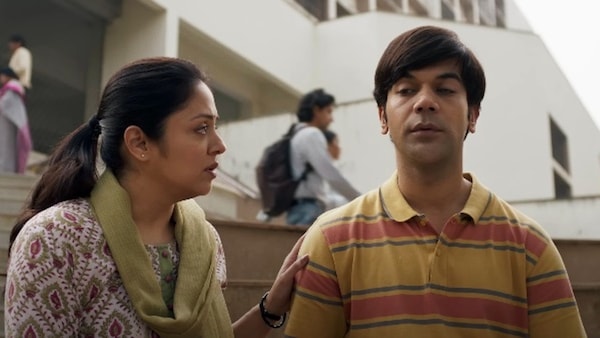
Last Updated: 02.50 PM, May 11, 2024
TUSHAR HIRANANDANI’s Srikanth is a special kind of a bad biopic. On the one hand, it perpetuates the Hindi film problem with this genre where the central character is valourised with unreserved sincerity. On the other, it takes 30 steps where others have taken 10; Srikanth does not stop at simply elevating the man on whose life it is based on but does it to such an extent that an incredible factual story assumes the excess of a fictional lore. The outing burdens a flesh and blood person with its inordinate ambition, causing him to not walk but fly — even when the flight is just an illusion.
Srikanth retells the story of Srikanth Bolla, the 32-year-old entrepreneur who was born visually impaired and later went to fight against an orthodox system for dignity and basic rights. It is a spectacular tale that lends itself to easy headlines. One of them being that he runs a successful business — Bollant Industries — that recycles paper to produce eco-friendly packaging solutions. Or, that he studied at Massachusetts Institute of Technology (MIT) and was the first international blind student to do so. Or, that he fought against the stringent education system in India to study science after his Class 10 board examinations at a time when it was not legally allowed.
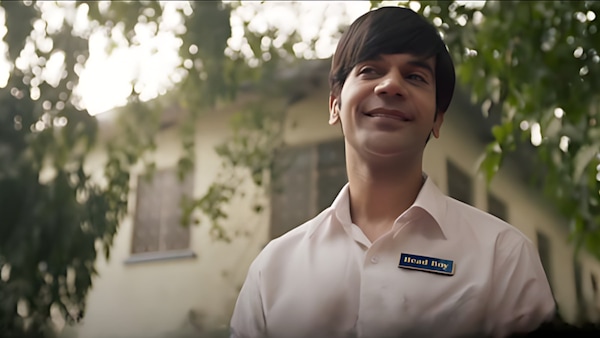
Hiranandani’s film is a relentless regurgitation of such headlines for 134 minutes. Every moment exists to lend heroic subtext to Srikanth. Each scene follows just one arc: Srikanth does something which people were convinced he could not do, the system is at a loss to deal with a blind man wanting to be treated normally and then comes the final act: Srikanth teaches everyone a lesson. It is tiring, exhausting and by the end, downright unbelievable that two human writers (Jagdeep Siddhu and Sumit Purohit are credited) came up with instances which separately would not float even as TVCs.
Here are some examples: After IITs refuse to give him admission on the grounds of disability, Srikanth decides to study abroad. Four annoyingly fake interviews later (“Wow Mr Srikanth you are so inspiring!”) when he finally lands up at the airport, he is told that a blind person cannot travel alone. Srikanth, the hero of the story, demonstrates at the airport itself how well informed he is about the interiors of the flight. The moment concludes with passengers clapping. Here’s another scene: Srikanth is not allowed to study Science in Class 11 even when he scored way more than was required. He files a case, and when taunted by the principal that he cannot read printed books like others, Srikanth hands him a book written in Braille and asks him to read. You get it? Do you…get it?
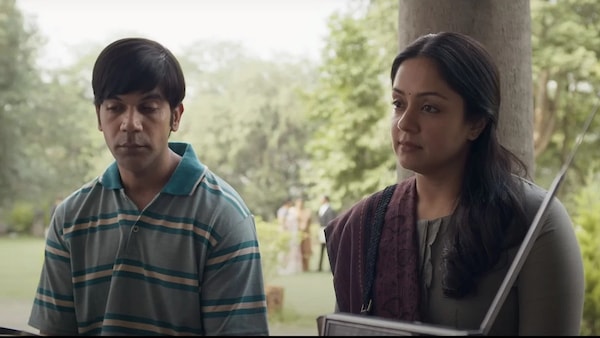
In case you did not, in case your attention fell through the cracks of blatant exposition, there is nothing to worry. The infantile storytelling of Srikanth goes hand-in-hand with a hyperactive background score that takes it upon itself to supply music for every mood. The moment Srikanth’s face drops, sad music plays on cue. When he is happy, triumphant notes fill the frame. If you think this is too on the nose, I have news for you. As the film progresses and the prospect of Srikanth’s life looks up, the film works overtime to teach the able crowd prone to looking down upon specially-abled people a lesson. A boy from his native Machilipatnam village had made fun of him when young? Hiranandani brings the character, jobless and looking for help, precisely the moment Srikanth, rich and successful, is giving interviews about his flourishing business. A government employee undermines him? Right at that second his associate walks in and thanks Srikanth profusely for fighting a case for blind people to study Science in Class 11. His son could do so because Srikanth showed him the way. His investor is shocked that a blind man needs a funding of Rs 8 crores to start his business? At that moment, two blind men come begging at the car and Srikanth says, “Don’t worry we will give him a job.” Address, what address?
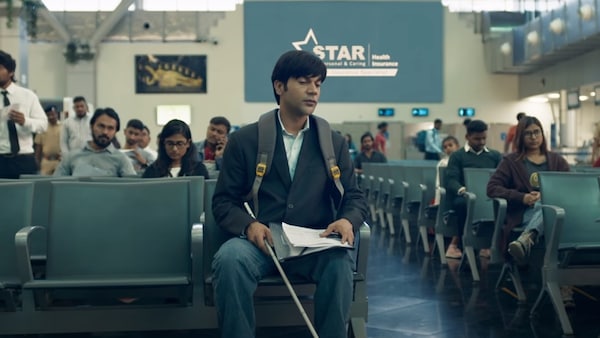
Srikanth is so subsumed in making a superhero out of its lead that the film forgets to humanise him. Every other actor is reduced to a cardboard fixture. They are not written as much as inserted and are designed as mouth pieces to broadcast Srikanth’s achievements. There is his teacher, Devika (Jyothika wasted with cruel indifference, his girlfriend Swathi (Alaya F), his investor Ravi (Sharad Kelkar) whose only purpose is to move in and around Srikanth and voice his dilemmas. At this point I must also point out that Swathi’s character is written with such a clear male imagination (no backstory, no surname, no ambition, no inner life) that for the longest time I was convinced she was a figment of Srikanth’s imagination. By the time the film agrees to show the more humane side of Srikanth, where he gets egotistical, the pursuit lasts for a full 10 minutes. Sooner than later, our hero is back on track to be the messiah that he is.

The irony here is that by treating Srikanth Bolla with comical regard, Srikanth reserves the most condescension for a man whose pursuit in life has been to be treated normally. Every instance in Hiranandani’s film exists to remind us of Srikanth’s blindness and perversely goad sympathy for someone who never desired any. Reverence is a persistent issue even when the outing dares to underline the ableist attitude of the Indian education system and does nothing to pursue it further. The man at the centre of the narrative makes things worse. Rao, an otherwise formidable actor, is unbelievably performative. There are sparks of ingenuity but for the most part, the actor plays Srikanth with tepid imagination and one-note variation.
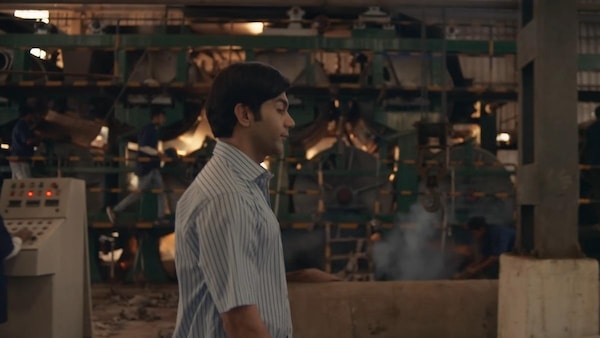
Srikanth is a classic instance of how to diminish an incredible story and retain only its barebones to shock the audience with incredulity. It is a glaring example of how in the hands of a lesser storyteller, even the most rousing personhood can get reduced to a tiresome personality. The film proves that life is not what you make of it, but how you speak of it.
